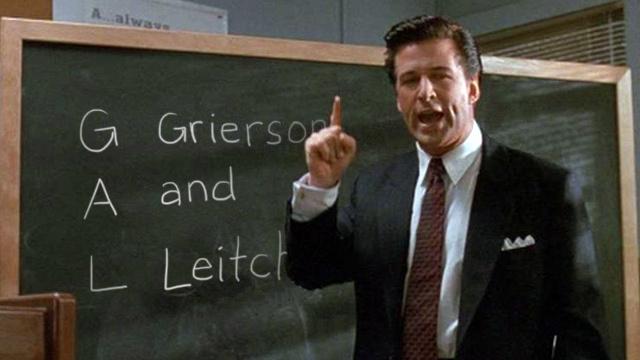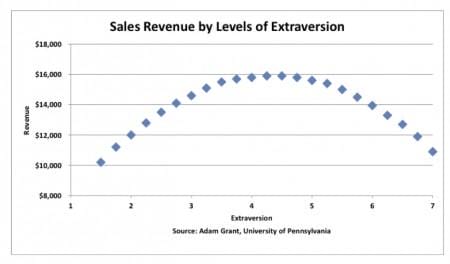
Imagine a team of perfect salesmen and saleswomen. What would they be like?
If they’re not working the phones all day, they’re probably attractive. Good looks have a way of helping sales.
They probably also have big personalities. They’re the life of the party. They’re back-slappers and firm-handshakers. They’re the type whose presence fills a room. In other words, they’re extraverts.
In a recent study, professor Adam Grant of the University of Pennsylvania tested what we assume to be true. He asked the sales staff of a large software company to anonymously assess each other’s introversion/extraversion on a scale from 1 to 7 — 1 being very introverted, 7 being very extraverted. Grant then tracked the revenues brought in by each salesperson over a three-month period to see if there was a correlation between sales performance and level of introversion/extraversion. You can see his findings in graph form below.

Source: “Rethinking the Extraverted Sales Ideal” via Dan Pink
As expected, strong introverts weren’t very effective salesmen. However, strong extraverts also weren’t very effective salesmen. Grant’s findings indicated that the most effective members of the sales staff were the “ambiverts” – those rated right in the middle of the spectrum. Simply put, the rockstar salesmen weren’t those with larger-than-life personalities.
It’s important to note that these ratings were based on peer perceptions: The study merely asked colleagues and coworkers to rate each other’s extraversion on a scale. The study made no attempt to tease out any notion of “intrinsic” or internally-determined extraversion. In other words, if you want to improve your sales revenues, you may be able to fake it ‘til you make it, regardless of your own introversion/extraversion preference.
To get occasional notifications when we write blog posts, sign up for our email list.



